Felix Baumgartner, extreme athlete, dies in paragliding crash in Italy
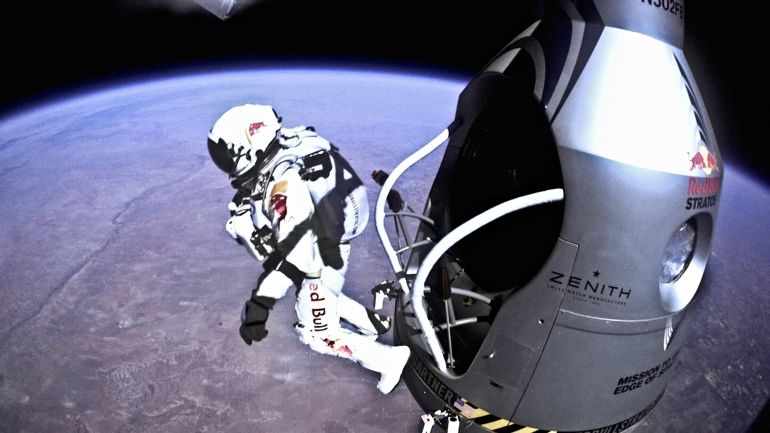
The legendary daredevil, best known for his record-breaking jump from the stratosphere, lost control of his paraglider and crashed into a hotel pool. Renowned extreme athlete Felix Baumgartner, most famous for jumping from a record 39 kilometres (24 miles) at the edge of space in the 2012 Red Bull Stratos project, has died in a paragliding accident in Italy on Thursday. The 56-year-old Austrian crashed his paraglider in Porto Sant’Elpidio, situated on the Italian Adriatic coast, after losing control and plunged into a wooden structure next to a swimming pool of the Le Mimose Family Camping Village, according to Italian media reports. A female hotel employee was injured by a piece of debris and taken to hospital with neck injuries. Baumgartner died at the scene of the accident, and investigations into the circumstances of the accident are under way. Italian media reported that Baumgartner had already lost consciousness in the air. The city’s mayor, Massimiliano Ciarpella, confirmed Baumgartner’s death in a social media post. “Our community is deeply affected by the tragic disappearance of Felix Baumgartner, a figure of global prominence, a symbol of courage and passion for extreme flight,” the mayor said. Just two hours before his deadly crash, he posted on the social media platform Instagram with the foreboding caption “too much wind”. The famous 2012 jump from the edge of space that propelled Felix Baumgartner to global fame [Handout/Red Bull Content/Pool via Reuters] From skydiving to the stratosphere Born in Salzburg, Baumgartner completed his first parachute jump at the age of 16 and later became a parachutist in the Austrian military. Advertisement Baumgartner’s reputation as an extreme sports athlete grew exponentially when he turned his hand to the sport of base jumping in the 1990s. He set a new world record for the highest base jump from a building with his leap from the Petronas Towers in Kuala Lumpur, Malaysia, in 1999. Later that year, he completed a base jump from the famous statue of Christ the Redeemer in Rio de Janeiro, Brazil. On July 31, 2003, Baumgartner again made global headlines for his base jumping feats when he became the first person to cross the English Channel in free fall after jumping out of a plane equipped with specially developed wings made of carbon. But it was Baumgartner’s record-breaking free fall from space in 2012 that shot the Austrian to worldwide fame. Over the desert of New Mexico, he jumped from a helium balloon almost 39km (24 miles) above the planet and became the first person to break the sound barrier in free fall. Baumgartner set three world records for his jump: He reached a maximum speed of 1,357.6 kilometres per hour (834mph), or Mach 1.25; completed the highest jump at 38,969 metres; and recorded the longest free fall with a length of 36,402 metres. His death was confirmed late on Thursday by the energy drink company Red Bull, which sponsored many of Baumgartner’s stunts. Baumgartner jumps out of a plane above Dover, England, on July 31, 2003, wearing a carbon fibre wing suit [Helmut Tucek/AFP] Adblock test (Why?)
Not just about the Druze: Israel’s rationale for its attacks on Syria
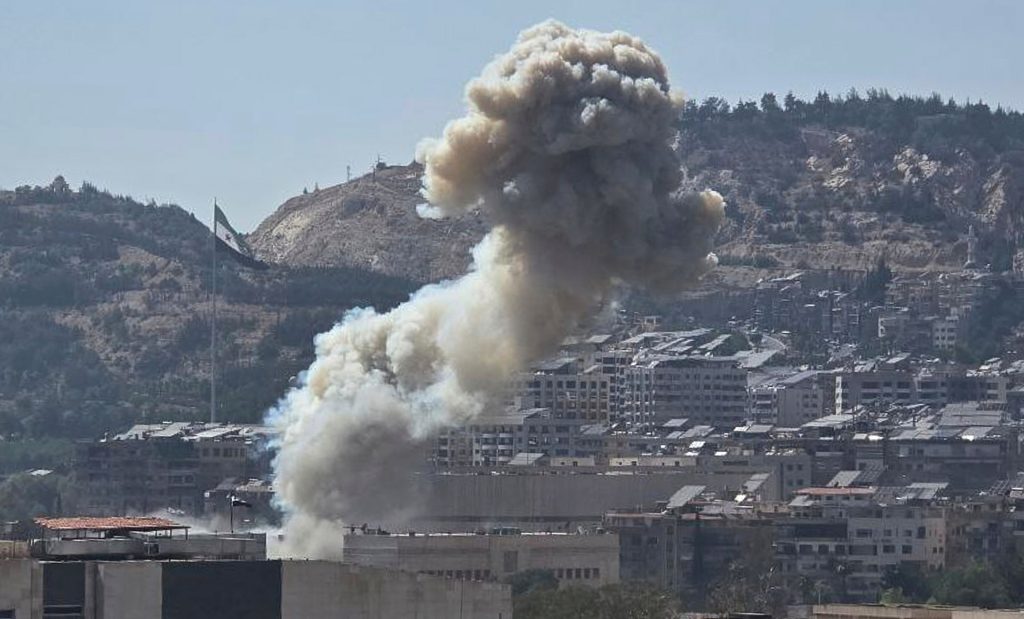
On Wednesday afternoon, Israeli Prime Minister Benjamin Netanyahu issued a video message to his country’s Druze minority. He implored them not to cross into southwestern Syria to support Syrian Druze militiamen in their fight against local Bedouin and government forces in Suwayda. And yet, as Netanyahu made the statement, his own forces were bombing the Syrian capital Damascus, hitting the country’s Ministry of Defence, and killing at least three people. Netanyahu claimed that he had deployed Israel’s military might in the defence of the Druze. “My brothers, the Druze citizens of Israel, the situation in Suweyda in southwestern Syria is very serious,” the principal architect of the 2018 nation-state law that’s been widely criticised for marginalising the Druze and other minorities said. “We are acting to save our Druze brothers and to eliminate the gangs of the regime,” he assured them, referring to the Syrian government. Israel’s Druze Sectarian tensions between the Druze and local Bedouins in Suweyda are longstanding. Meanwhile, attempts by the newly formed Syrian government, which took power after the fall of longtime dictator Bashar al-Assad in December, to assert control over the region have been frustrated in part by Israel’s repeated threats against the presence of the Syrian military near its border. There are roughly 700,000 Druze in Syria. Another 150,000 Druze live in Israel, where, at least before the 2018 law emphasising only Jewish self-determination, many regarded themselves as bound by a “blood covenant” with their Jewish neighbours since 1948 and the founding of Israel at the expense of hundreds of thousands of Palestinians who were ethnically cleansed in the Nakba. While some now feel like “second-class” citizens, the majority are still supportive of the Israeli state, where they serve in the military. Advertisement “The Israeli Druze see themselves as Druze, as Israelis, and as Arabs,” Rami Zeedan, an associate professor at the University of Kansas and the founder and editor-in-chief of Druze Studies Journal, said. “Part of the identification with Israel is the feeling of both Jews and Druze being persecuted minorities,” he added. “Israeli Druze still feel that they have much more to gain from Israel compared to any other hypothetical future. As a cornerstone of this alliance is the protection of the Druze community.” “The Israeli Druze are now trying to use that and urge the Israeli government to protect fellow Druze in Syria,” he said, explaining, in part, the justification for Israel’s strikes on Syria, where the Druze community has traditionally been anti-Israel, even as some leaders grow closer to Israel. ‘Pure opportunism’ But the reality is that Israel has long attacked Syria, even before the latest outbreak of violence involving the Druze in Suwayda. Since the ousting of al-Assad after a 14-year war, Israel has struck Syria hundreds of times and invaded and occupied about 400 square kilometres (155sq miles) of its territory, excluding the western Golan Heights, which it has occupied since 1967. Leading analysts within Israel suggest that these latest attacks may not have been entirely motivated by concern for the welfare of the Druze, so much as the personal and political aims of the Israeli government and its embattled prime minister. “It’s pure opportunism,” Alon Pinkas, a former Israeli ambassador and consul general in New York, told Al Jazeera. “Of course, it’s nice to pretend that we’re helping our friends the Druze, in the same way as we never helped our other friends, the Kurds,” he said, referring to another regional ethnic group. Pinkas sketched out a number of the motivations behind Israel’s recent strikes on Syria, from boosting Netanyahu’s newfound self-image as a wartime leader, to pushing back his corruption trial, to reinforcing the “delusion” that, over the previous 21 months, Israel has somehow managed to reshape the Middle East through military force alone. “Lastly, he doesn’t want to see a unified Syria with a strong central government controlled by al-Sharaa,” Pinkas said. “He wants a weak central government dealing with areas controlled by the Kurds [in the north] and the Druze and Bedouin in the south.” “Basically, if Syria remains un-unified, Israel can do what it wants in its south,” he added. Netanyahu has repeatedly emphasised that Israel will only stand for a demilitarised Syria south of Damascus, including the region that encompasses Suwayda. This, in effect, creates a buffer zone for Israel, adding to the military reasoning for Israel’s actions in Syria. Advertisement Hollowed out by war The attacks on Syria have the additional effect of sustaining the sense of crisis that has gripped Israeli society and sustained its government through numerous scandals since the Hamas-led attack of October 7, 2023, and the subsequent war on Gaza. Israel has since attacked Lebanon, Iran, Yemen and Syria. “It’s not that people are tired of war; it’s like they no longer even care. It’s ennui,” Israeli political analyst Ori Goldberg said of the public response to the latest attacks. “War gives people energy and meaning, but it’s fleeting. People have even forgotten about the war with Iran,” he said, referring to the 12-day war in June that prompted global fears of regional escalation. All the caveats and cautions that would normally precede military action had, Goldberg noted, been replaced by ever-fresh dangers requiring new escalations. “It’s dangerous,” he said. “Israelis don’t care about the Druze. It’s just a new threat, a new front, and now there’s this tired, ‘OK, dude. Let’s do it [attitude]’.” “War has hollowed us out.” Adblock test (Why?)
Deleted Virat Kohli’s video resurfaces after Karnataka government blames RCB for Chinnaswamy stampede, WATCH

The Karnataka government submitted a status report on the Chinnaswamy stadium stampede in Bengaluru that claimed 11 lives and left over 50 people injured to the High Court on Thursday.
Low turnout in Togo municipal polls after deadly protests
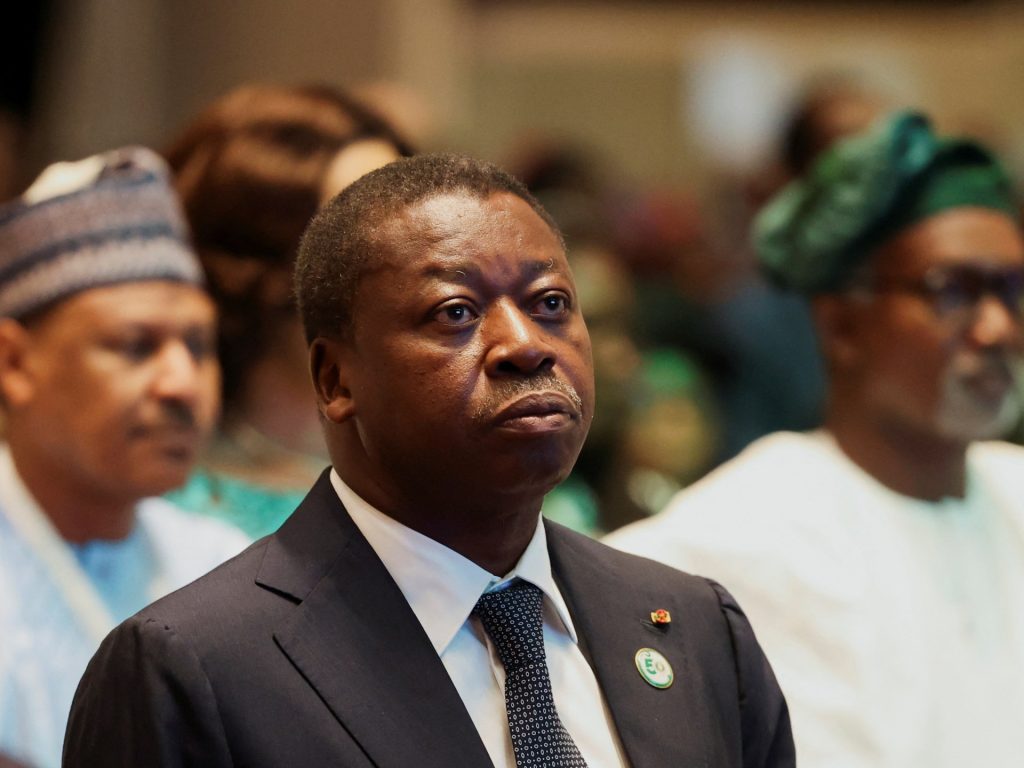
Heavy security presence in Lome amid public anger over leader Gnassingbe’s alleged power grab. Togo has voted in municipal elections amid reports of voter apathy, after the country was rocked by deadly protests last month. Polling stations in Togo’s capital Lome were largely deserted on Thursday. The low turnout came after June’s protests against constitutional reforms that could keep leader Faure Gnassingbe in power indefinitely. Rights groups blamed the police for the deaths of seven marchers in the protests, whose bodies had been fished out from the capital’s rivers by activists. “People are … afraid of being attacked by protesters for legitimising these elections, or afraid of being dispersed by security forces,” Edem Adjaklo, a voter in the Gakli neighbourhood, told The Associated Press news agency. “They feel it’s pointless to vote because the results are always the same – predetermined.” The sense of unease in Lome was reportedly heightened by a heavy police and military presence at major intersections. Despite a call for demonstrations against Gnassingbe, the streets of the seaside capital were quiet on Thursday. Gnassingbe has ruled the country since 2005, after the death of his father and predecessor as president, Gnassingbe Eyadema. The constitutional reforms, approved by a parliament dominated by Gnassingbe’s Union pour le Republic (UNIR) party, swapped the presidential system in the country for a parliamentary one. Under the reforms, Gnassingbe was sworn in two months ago as president of the Council of Ministers – effectively as prime minister – a role with no official term limits, which would allow him to be re-elected indefinitely. Advertisement Critics called it a “constitutional coup”. Diaspora-based social media influencers and civil society groups had called for a boycott of the elections, the first national vote organised since the constitutional reform. This year’s bout of protests was triggered after popular rapper and TikToker Tchala Essowe Narcisse, popularly known as Aamron, was arrested for publishing a video where he called for protests to mark the president’s June 6 birthday. Anger had also been simmering over the state of the economy, widespread unemployment and the repression of government critics. Public demonstrations have been banned in the country since protests between 2017 and 2018, which saw thousands of protesters taking to the streets in demonstrations tagged “Faure Must Go” and “Togo stands up”. Although officially a democracy, Togo operates in practice as a militarised state, with the army heavily involved in politics. Adblock test (Why?)
India strengthens defence with successful launch of Prithvi-II, Agni-I missiles

India successfully test-fired its Prithvi-II and Agni-I ballistic missiles from Odisha, showcasing its growing defence strength after recent military tensions with Pakistan.
US takes BIG step on Pahalgam terror attack, declares LeT proxy The Resistance Front as…
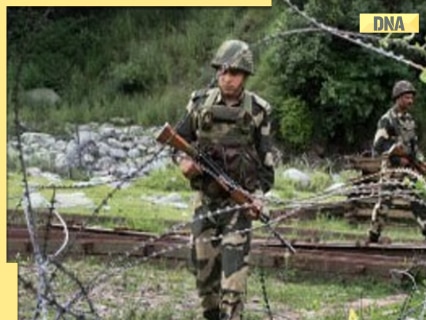
The US has officially labelled The Resistance Front (TRF) as a foreign terrorist organisation. This move is huge because TRF is a proxy for the Pakistan-based terror group Lashkar-e-Taiba (LeT).
Big tension for Pakistan, China, Indian Army to receive next batch of AK-203 assault rifles, will be delivered by…

With these new rifles, India’s defence preparedness is set to get a major upgrade.
Bomb scare: More than 20 schools in Delhi receive bomb threats, here’s what we know so far
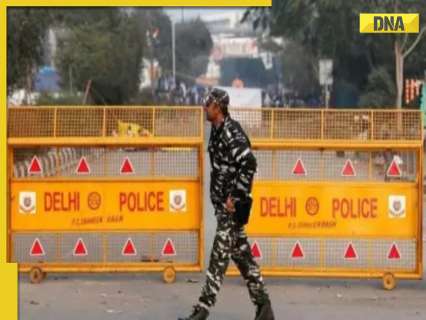
This comes days after nearly ten schools and one college in the national capital received bomb threats via email over the last three days, prompting police action and temporary closures.
Federal DEI funding cuts threaten the work of the few remaining Black farmers in East Texas

Trump’s rollback is another example of the federal government’s lackluster efforts at giving Black farmers a boost in recent years.
Ken Paxton sues adult swimming organization for allowing transgender competitors at San Antonio event

The Texas attorney general said U.S. Masters Swimming violated the state’s Deceptive Trade Practices Act by allowing trans athletes to compete in women’s events.

